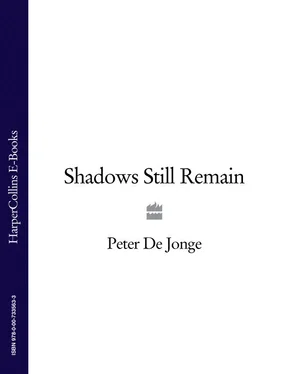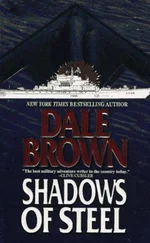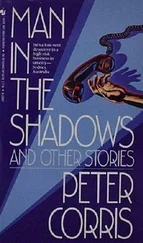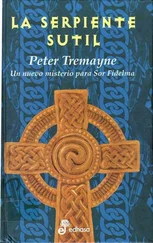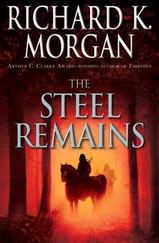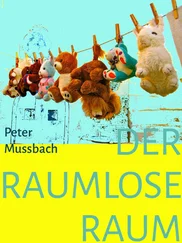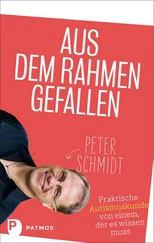In the depressed former mill town of Westfield, Massachusetts, Pena rewrote her destiny, or at least tried to. She became a competitive runner and a motivated student, won a scholarship to a prep school and two years later a full ride at NYU. According to a quote from the Assistant Provost and Director of Admissions, Pena had made so much progress as a student-athlete, the school was planning to propose her as a candidate for a Rhodes scholarship.
O’Hara has read enough of these stories to know they’re written to a curve. When catastrophe lurks, a pretty girl becomes a breathtaking beauty and a B student a future world leader. But it’s the particulars of Pena’s story that get O’Hara’s attention. O’Hara also lost her father at eleven, and although getting pregnant didn’t get her sent to juvenile detention, the special school for fuckups on East Tenth Street wasn’t much better. And then there’s the oddly parallel cross-country trips, Pena’s mother grabbing her daughter and heading east, not long before O’Hara and Axl headed west. And weren’t both mothers attempting about the same thing: to distract their impressionable kids with a change of scenery?
O’Hara should have known Callahan would call reporters, but it never occurred to her that they would bite so enthusiastically. Now that they’ve decided Pena can sell papers, it’s become the kind of case that can launch a career. But not for long. If Pena’s disappearance is upgraded to a homicide, she and Krekorian will only get to work it for seventy-two hours. Then it will be turned over to Homicide South, and for O’Hara and Krekorian, it’s back to burglaries and domestic disputes, Astrid with her stroller and fake kids and Dolores in her bathrobe.
Krekorian lives twenty miles up the Palisades in the Rockland County town of New City, or as he likes to call it, Jew City. He picks up O’Hara on his way in, and they get to Freemans at 2:30 p.m., several hours before it’s due to open. Although O’Hara finds the place a lot easier to take empty, the daylight isn’t kind to the decor and reveals how little money was spent to achieve its faux-antique effects. The oil-stained mirrors and dusty paintings that at night suggested the lodgings and funky heirlooms of a hard-partying disinherited count look like sidewalk trash during the day, and the animal heads on the walls look like roadkill.
“Two things you can’t avoid, Dar,” says Krekorian, nodding at a glassy-eyed elk.
“Death and taxidermy.”
“I guess someone forgot to tell Wesley Snipes.”
They sit at the bar and sip their coffee, while in the open kitchen a line chef sautées onions and a busboy pulls oversized plates from a dishwasher. Over the next hour, the waitresses and other kitchen staff trickle in, the employees getting prettier and whiter the closer they get to the customers. The maître d’ arrives, sporting a natty tweed blazer a couple of sizes too small, and soon after the weekday bartender, Billy Conway “She was too pretty not to remember,” says Conway, who actually looks like a bartender, with the thick shoulders and forearms of an ex-jock. “She and her friends had a couple spots at the bar. After they left, she moved to a table and stuck it out by herself to the bitter end.”
“When was that?” asks O’Hara.
“About three-thirty Because of Thanksgiving, we closed a little early.”
“She leave alone?”
“Yeah.”
“No one followed her out?”
“There was no one left to follow her. She was the last one here.”
“She talk to anyone beside her friends?” asks Krekorian.
“Right after her friends left, a guy came over and tried to chat her up, but got cut off at the knees.”
“You ever see him here before?”
“First time. About five feet ten, bad skin, long hair, at least fifty One of those ugly Euro guys some girls can’t get enough of.”
“Little old for this place, isn’t he?”
“Yeah, but we get a couple trawlers just like him every night. Polanskis we call them.”
“Speaking of age,” says O’Hara, “all four of those girls were under twenty-one.”
“They had IDs; I looked at them myself.”
“You should have looked harder. Polanski, how’d he take getting shot down?”
“Quite well. I don’t think he was going to leave the country. Besides she did it so fast, it was like laser surgery. If I wasn’t right in front of them pulling a draft, I wouldn’t have noticed. He finished his drink, put down a generous tip and left. Paid cash, or I’d look for the receipt. Then she took her Jack and Coke and sat down at that table.”
“You remember every drink you pour four days later?” asks O’Hara.
“The reason I remember is because she and her friends had been ordering one labor intensive cocktail after another, stuff that’s a pain in the ass to make. As soon as they left, she switched to something simple. I was relieved. The other reason I remember is because it confirmed something I already thought, which is that she didn’t fit in with her friends. They seemed like brats. She didn’t.”
“Anything else stand out about the night?”
“How about a beautiful girl, the night before Thanksgiving, closing down a place alone. Isn’t that weird enough? And it wasn’t like she was drinking herself blotto. It was more like she had nowhere to go.”
O’Hara takes Conway’s cell number, and she and Krekorian walk back down the alley, where on second viewing even the graffiti looks bogus. Despite being filthy, the piece-of-crap Impala is a welcome sight, probably because it’s the only place in the Seven where they feel entirely comfortable. Krekorian starts the car and cranks the heat, and they sit in silence, giving each other the space to think. A soft rain has begun to fall, and at 4:30 Rivington is already deep in shadows, the last bit of light falling out of the sky like a boxer taking a dive.
“Something’s off,” says Krekorian. “Pena tells her girlfriends she wants to stay and check out this hot prospect. Then, the minute he comes over, she shoots him down.”
“I hate to be the one to break it to you, K, but a girl can change her mind at any time. Maybe Polanski looked even older up close. Maybe he had a creepy voice. Or worst of all, maybe he smelled bad.”
“According to Conway, she didn’t let him get three words out. At three a.m. people aren’t that fussy.”
“They are if they look like Pena.”
“Then why didn’t she leave? Why’d she stay and order another drink?”
Slushy rain slobbers all over the roof, and O’Hara tracks a fat brown droplet down the windshield. In front of them on the curb, a tall Nordic girl wearing a purple and white NYU windbreaker, maybe a member of Pena’s track team, steps up to a light pole and tapes a picture of Pena over the sticker for a band called the Revolutionary Army of California. When the student moves on, Pena’s brown eyes stare down at them from the pole. O’Hara thinks of that mangy elk head on the wall.
“I say we have another talk with your buddy McLain,” says Krekorian.
They decide to leave the car where it’s parked and walk to Pena’s Orchard Street apartment, O’Hara glancing at her Casio so she can time the trip and see how long it might have taken McLain to get back and forth from Freemans. At 5:03, the sun’s gone and few lights have been turned on to replace it, and when they reach Chrystie, the steel skeleton of a condo in progress called the Atelier looms behind them. To the east, all is black, as if the night had taken the old neighborhood by surprise.
They cross dark, skinny Rivington Park between a rubber-coated jungle gym and an overgrown garden, the damp air smelling of night and greasy egg rolls. Then two more dark blocks to Allen, past a Chinese nursing home and a boarded-up synagogue whose windows are shaped like the tablets Moses, the first cop, brought down from the mountain. The synagogue can’t be more than a hundred years old, but here, where a century is as good as a millennium, it’s an ancient ruin. On Orchard, lights have been strung overhead to announce the start of the Christmas shopping season. As O’Hara and Krekorian take it south, the Indian owners in the doorways whisper “very good price” and draw their attention to the racks of seventy-nine-dollar leather coats lined up on the curb. Even ten years ago this neighborhood was filled with bargains, its small narrow stores so stuffed with inexpensive merchandise it poured out onto the streets. These two blocks of Orchard between Rivington and Delancey are all that’s left, an anomaly in a neighborhood whose only purpose is to provide a backdrop of authenticity for fake dive bars, pricey restaurants and whitewashed boutiques.
Читать дальше
